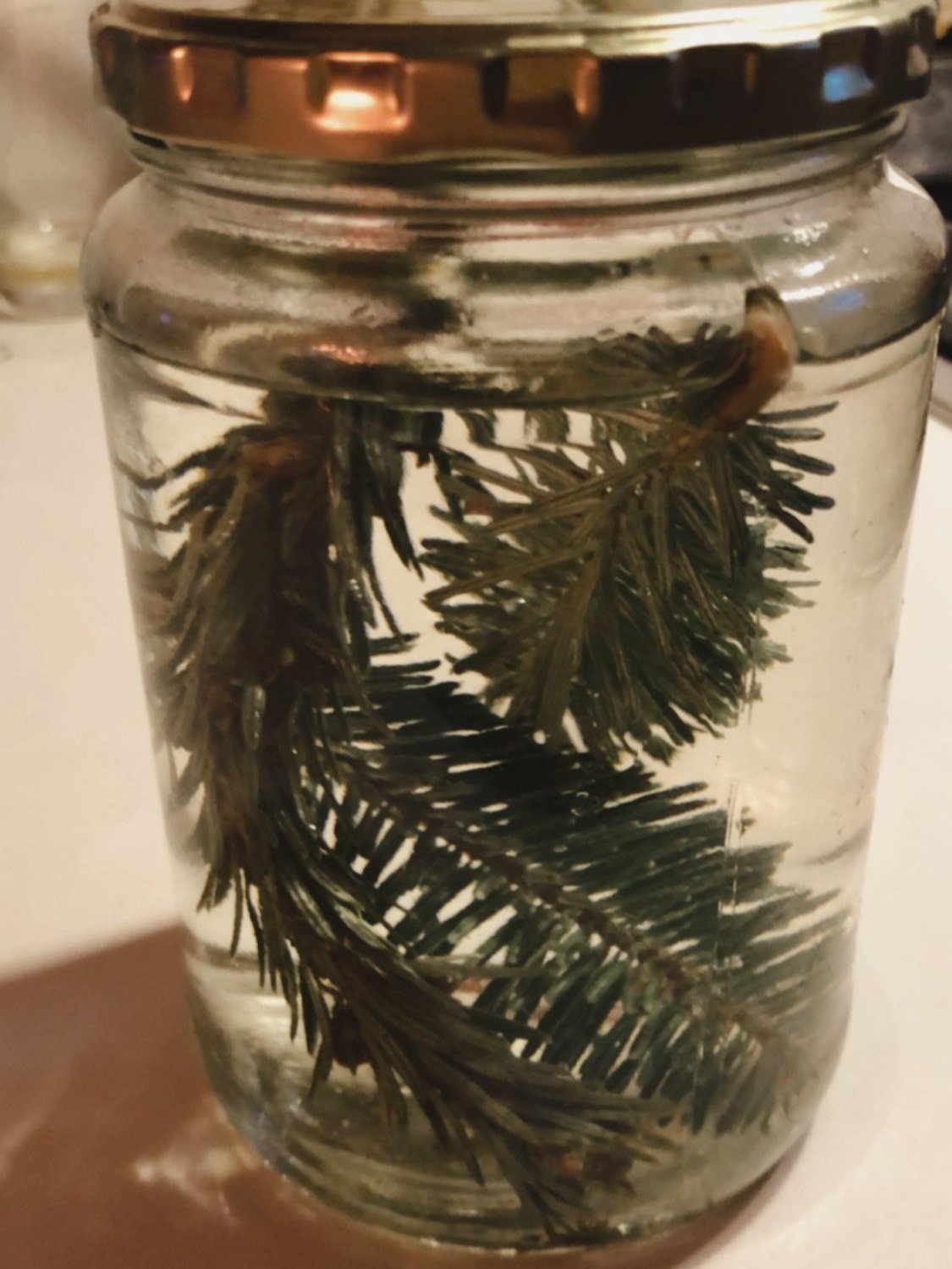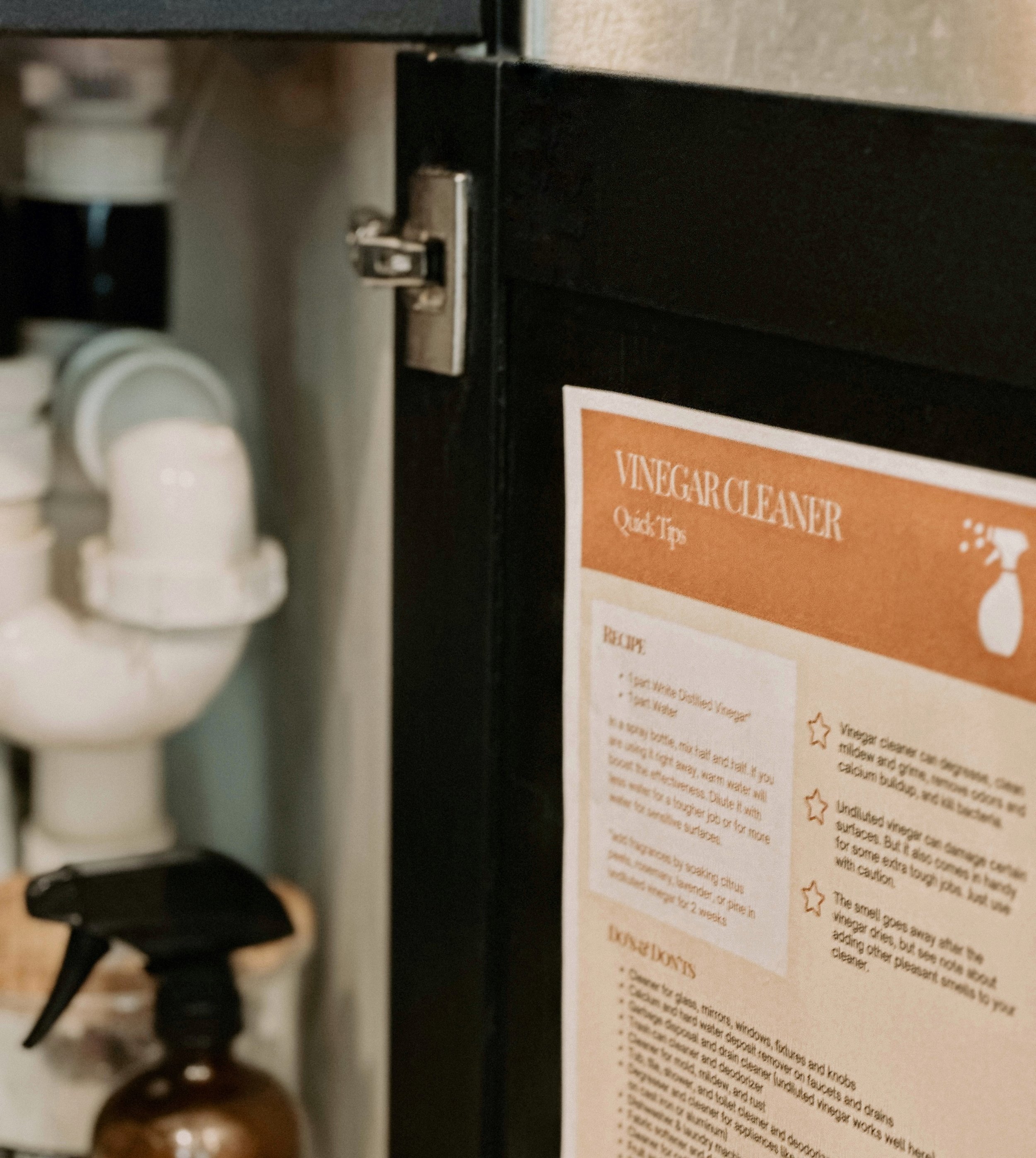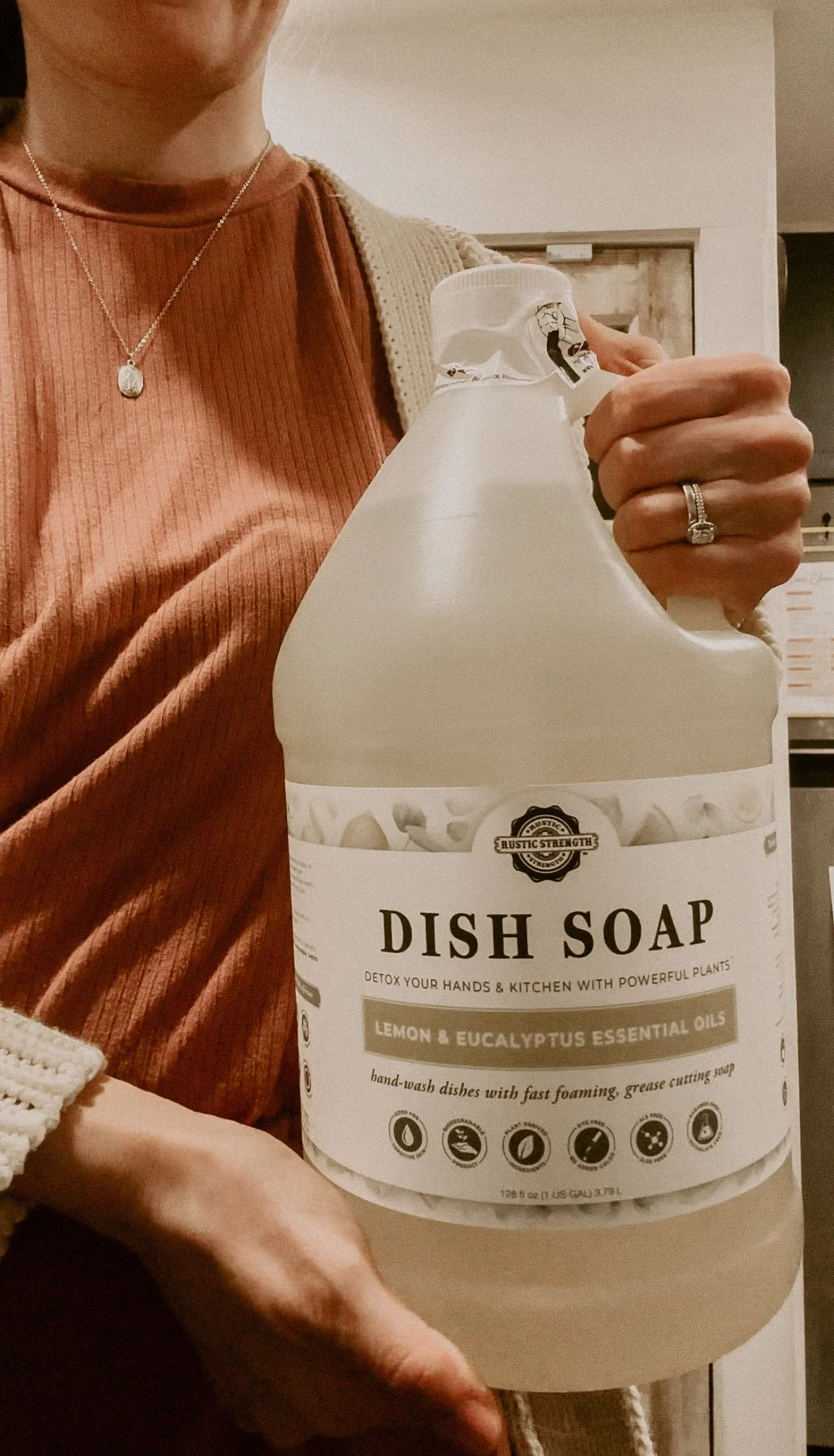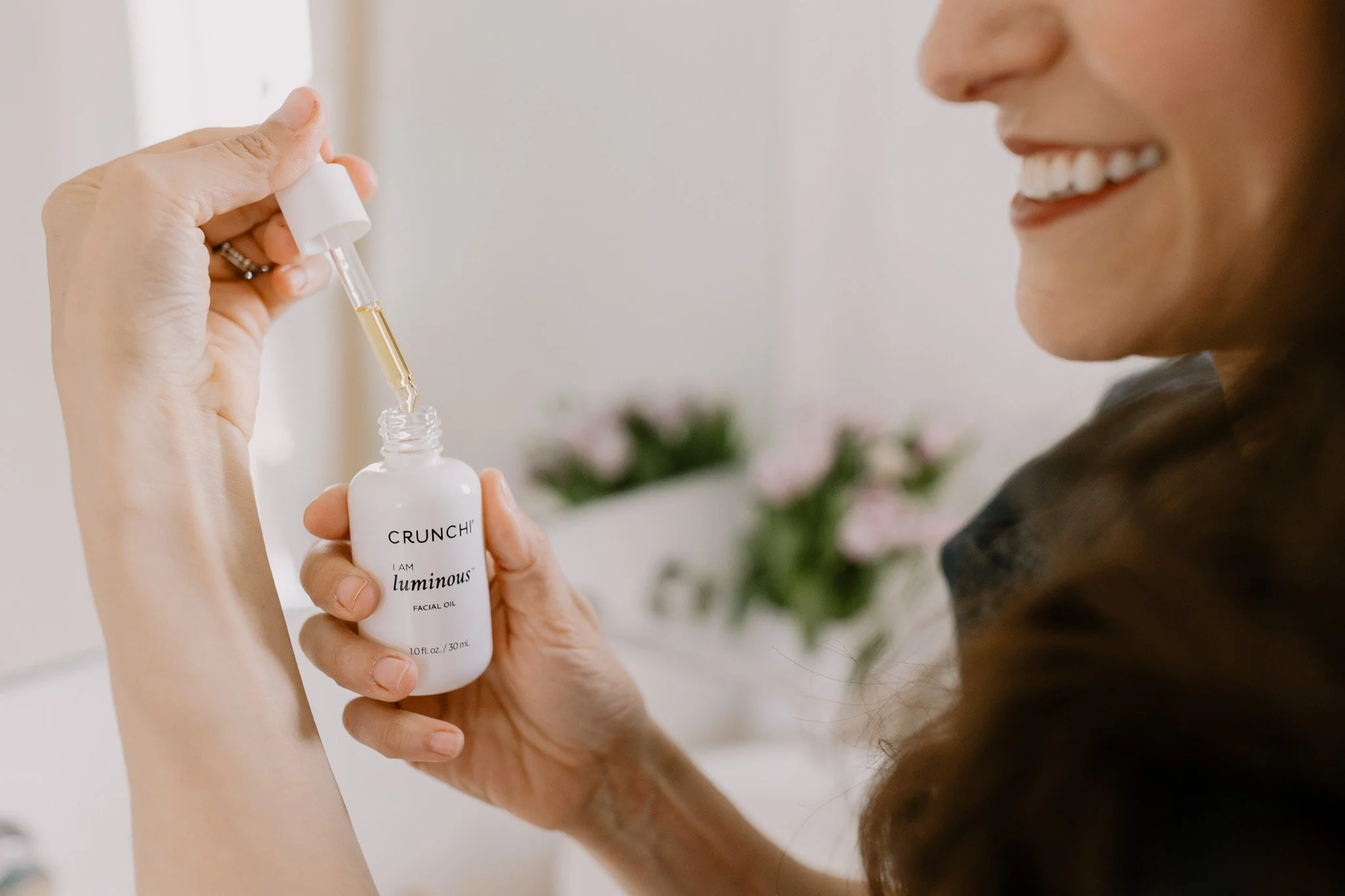Everything You Need to Know About Cleaning with Vinegar
In this post, you will learn everything you need to know homemade vinegar cleaners, all the do’s and don’ts, some great recipes, and download a FREE PRINTABLE to make remembering everything a little easier.
How I Started with Vinegar
I became interested in switching to non-toxic cleaning products when I was pregnant with my first child. However, trying to understand the ingredients on product labels felt like learning a foreign language. Researching the overwhelming amount of ingredients with their potential health risks was daunting. So instead of trying to translate every chemical on the label, I decided to start by making one bottle of vinegar cleaner.
I had never made my own cleaner before and I was skeptical about how well it would work but figured it was worth it to try. I had no idea just how many things I would be able to clean with this one little bottle. After a few days of cleaning with vinegar, I was convinced I was never going back to chemical cleaners. Once I saw what it was capable of, I was stunned that I had bought into the idea that I needed a different cleaning product for each and every part of my home.
I had the stainless steel cleaner, the glass cleaner, the floor cleaner, the counter cleaner, the wall cleaner, the carpet cleaner, the wood cleaner, the toilet cleaner, the tub and tile cleaner, the sink cleaner, the drain cleaner, the oven cleaner, the mold cleaner…endless cleaners for endless things.
Guess what my friends?!
All of those chemical cleaners “needed” for specific things…it is all marketing. Ok, well maybe not all marketing. Do they work? Sure they do! They work by using some strong chemicals that aren't advisable to expose ourselves to as routinely as cleaning requires. I am not anti-chemicals where it is necessary, but for routine cleaning, I have found, it isn’t necessary. Now I will say, not all chemicals are toxic, just as it is true that not all bacteria is bad. But when it comes to toxic chemicals as a way to clean, I find it an odd mentality to equate something that is toxic with clean. Wouldn’t they technically make it more dirty? Would the organic dirt be less hazardous to my health than the chemical? Well, that's a rabbit trail for a different day but it was something I reflected on as I watched my 10 month old gleefully licking the glass front door. All I can say is, I was happy knowing vinegar had cleaned that door and that I didn’t need to put an end to her fun new game.
Here is the truth, you don’t need multiple cleaners. You mainly need vinegar.
Most things can be cleaned with this simple, nontoxic, inexpensive (around $5.00 for 5 gallons at Costco), and even edible product.
Yes, it is beneficial to having a few other products in your cleaning cabinet but if you are just starting out with less chemical cleaners, I think the best first step is to make yourself a bottle of vinegar spray.
Do’s and Don’ts with Vinegar Cleaner
You will find many blogs and articles that caution cleaning with vinegar for many things. This is because vinegar is an acid that is powerful in what it can do. Certain surfaces can get damaged and even corrode with the exposure to undiluted vinegar. Did you know vinegar can be used as a wood stain remover and paint stripper? It can do more than you may realize!
But as for cleaning, when diluted and used on recommended surfaces, it works really well! I never let undiluted vinegar sit on a surface unless it is recommended to do so– like when I used it to clean up our rusty old grill. Just vinegar and baking soda made that grill shine!! Go check out the link! Vinegar cleaner can degrease, clean mildew and grime, remove odors, and kill bacteria.
Here is a list of ways you can clean with it and a few things you should not do with it.
What you can do with Vinegar:
Glass and mirror cleaner/window cleaner
Fixtures, door knobs, faucets, etc.
Remove calcium deposits on faucets
Drain and garbage disposal cleaner (undiluted vinegar works well here)
Trash can cleaner and deodorizer
Clean mold and mildew/hard water deposits in bathroom
Tub and shower cleaner
Deodorize and clean toilet
Degreaser and cleaner for appliances (like stovetop)
Dishwasher & Laundry machine cleaner
Fabric softener and deodorizer
Clean and descale coffee maker and tea kettles
Rust cleaner
Fruit and Vegetable rinse (it cleans your fruit and vegetables)
Use as disinfectant (it kills 80% of bacteria and will need to pair with alcohol/rubbing alcohol for full effect)
Counter cleaner (depending on the material, laminate and ceramic tile are safe but most natural stone counters are not recommended)
Clean wood floors (I will say, this is a controversial topic. Some say not to do it, some say it’s fine. It can dull certain finishes depending on how your floors are sealed.)
Rug cleaner (unless you have pets..see why in the don'ts)
Tile cleaner (dilution is key)
Vinyl/linoleum floor cleaner
Try it even as a wood stain remover and paint stripper
What you shouldn’t do with Vinegar:
Don’t ever mix it with bleach or ammonia or hydrogen peroxide!! YIKES!
Don’t use it on unfinished wood floors or unfinished wood furniture, waxed coated surfaces.
Don’t use it on most stone surfaces (it isn’t recommended for most natural stone counters-marble, granite, travertine, slate, soapstone. Instead just use a little soap and water on them)
Don’t use it as a routine grout cleaner- but an occasional deep clean is fine
Don’t put it on tech surfaces
Don’t use it on cast iron or aluminum
And don’t use it on pet stains, it will cause the pet to go in the same spot 😝
Ultimately, it is up to you to decide how you feel comfortable using vinegar but in most cases if it's diluted and wiped up with a microfiber cloth, you don’t have to worry. A quick google search will help you learn more about all the ways to clean with vinegar. And if you ever find yourself with an odd cleaning job, check to see if vinegar will do the trick! I have found that 9 times out of 10 there is some way to use vinegar for what I need.
Making your Vinegar Cleaner
Ok so, now all you need are some recipes! I personally love these spray bottles. If you want to buy a bunch, get these ones . The amber color is lovely but not needed for vinegar cleaning. You can use a clear glass or plastic bottle too. Some cleaners and essential oils actually need darker bottles to keep them from expiring- hydrogen peroxide is one of these.
Just for fun, I like this label maker too.
As for the vinegar, you will want to use Distilled White Vinegar with 5% acidity. One 5 gallon bottle of white vinegar lasted me a year and allowed me to refill my spray bottle multiple times. There is another kind of vinegar called Cleaning Vinegar. It has 6% acidity. While that 1% might seem negligible it is actually much stronger. It is not necessary for making your routine cleaning solution.
This is my simple recipe for vinegar cleaner:
VINEGAR CLEANING SPRAY:
1 part White Vinegar (or Lemon Vinegar…see below)
1 part Water
In a spray bottle mix 1 part undiluted vinegar with 1 part water. If you are making it to use right away, warm water helps boost the effectiveness.
As mentioned before, vinegar is a strong acid and it should be diluted for routine household cleaning. My spray is diluted with 50% water. You can always dilute it with less water for a tougher job, or for more sensitive surfaces you may want to dilute it with more water and on some surfaces you can use straight undiluted vinegar.
Do you struggle with the smell of vinegar?
I am a very smell sensitive person. So let me be the first to tell you, there is a solution! First of all, once the vinegar dries, the smell disappears. Secondly, you get used to it after a while just like you can grow accustomed to liking the chemical smell of toxic cleaners. And lastly, there are recipes which solve the stink problem completely!
LEMON VINEGAR RECIPE:
2 lemons
1 Bottle of White Vinegar
In a large jar (I suggest repurposing a glass tomato sauce or pickle jar,) mix white vinegar with peels from two lemons. Seal with a lid and set aside for two weeks, away from direct sunlight. After two weeks, strain the vinegar to separate from the peels. Keep this undiluted lemon vinegar solution to use in/refill vinegar cleaning spray. It is ok if the lemon peels sit for longer than two weeks. I have forgotten about mine and left them for way longer. The vinegar works as a preservative for the peels so as long as they are under the vinegar and not exposed to the air, they will not go bad.
I love the lemon vinegar spray because citrus has great cleaning power as well. You can also make this recipe using orange or lime peels.
Here is another great recipe:
PINE VINEGAR RECIPE:
A Few Fresh Pine Twigs
1 Bottle of Vinegar
Follow the same recipe as with the lemon cleaner but use a few twigs of pine. Pine has a natural disinfectant property to it and your cleaner will smell like Christmas! Allow the vinegar and pine to soak for 2-3 weeks before straining and diluting with water for the vinegar spray recipe.
Want something free??
It may feel like a lot at the start so, to make the process of switching easier, I have made you this FREE PRINTABLE. You can tape it to the inside of your cleaning cabinet for a quick resource when you need it! Just enter your email and you will be immediately redirected to download the PDF.
RELATED BLOG POSTS:
Have you ever tried cleaning with Baking Soda? Check out this blog post!
What about Citric Acid? Yep. Did you know its a great toilet bowl cleaner??? Read more here!
Leave a comment, Save this Post, Share with friends!
If you are just starting to make switches to non-toxic cleaners, it can feel overwhelming. For now just focus on making one vinegar spray bottle and see how it goes and leave questions in the comments below!
Need other household cleaners?
Look no further! This is the BEST Dish Soap, get it in bulk and get their Castille Soap too!
Use code: AMISULIA for a discount!
Need toxin free skincare and makeup?
These are my favorites. I am happy to give you a personalized recommendation based on your skins needs, just fill out this survey.




